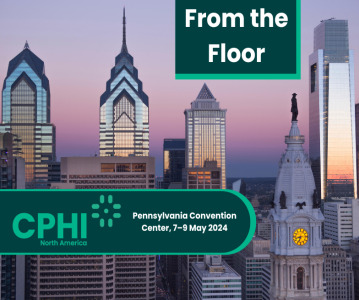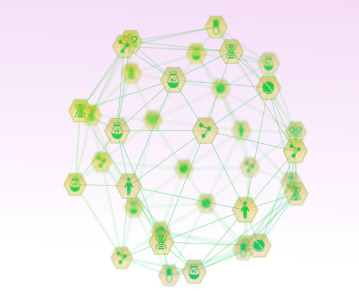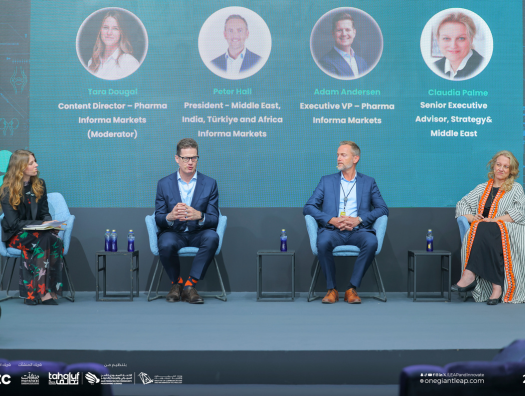The future of liquid pharmaceutical processing on show ... virtually!
.jpg)
Syntegon is currently implementing the application of Artificial Intelligence in visual inspection in several pilot projects together with customers – and will present the approach at the Virtual Show.
Syntegon to showcase flexible solutions for small and microbatches, new developments for liquid filling and assembly, as well as AI-enhanced product safety.
Next month, Syntegon Technology will provide insight into the future of liquid pharmaceutical processing at Virtual Show (7–13 May).
Using a combination of digital machine presentations, concept studies and pilot projects, Syntegon will demonstrate how pharmaceutical manufacturers can prepare for future trends.
For example, the company's new Flexible Filling Portfolio includes individually configurable, modular machines for processing small and medium batches to accommodate the increasing demand for new, targeted drugs for small patient groups.
Klaus Ullherr, senior product manager at Syntegon, explains: "The modular approach bundles our entire line competence for liquid pharmaceuticals and offers our customers maximum flexibility."
Whether syringes, vials or cartridges, pharmaceutical manufacturers can select the different modules individually and obtain a filling line completely tailored to their needs, including an integrated isolator for aseptic and high-potent active ingredients.
For even smaller batches, Syntegon will present a concept study for the processing of aseptic and high-potent micro-batches. "For very small batches, the focus is not on output, but on loss-free filling and fast batch changes," explains Ullherr. "The biggest challenge was to design the isolator of the production cell without glove ports." The result is a highly flexible and fully automated production cell with the smallest possible dimensions and a complete batch-to-batch changeover within 2 hours.
Another premiere at the Virtual Show will be the new version of the FLK 9000 piston filling machine — a monobloc solution consisting of the linear FLK filling and the rotary VRM capping machine for liquid pharmaceutical and cosmetic filling. The machine ensures the bottles are continuously filled, before being capped, which significantly shortens the length of the line. Furthermore, the filling tubes are moved automatically to the cleaning position and improved accessibility to the filling tubes makes format changes easier.
Syntegon will also demonstrate how new software that generates valuable data can be used for traceability and increased product safety.
"Until now, object-specific data could not be assigned to individual batches or containers once they left the machine," Markus Heinz, product manager at Syntegon, explained. The company's new Single Object Data Acquisition (SODA) system provides a remedy: a data matrix code attached to the container or closure contains all object-related and process-specific data of the container and can be read with a scanner. Valuable information collected during production can, therefore, now be assigned to individual containers and traced, thereby increasing product safety.
Combined with the Smart Containers from primary packaging manufacturer SCHOTT, the SODA system offers an advantage: the primary packaging materials are initially provided with a unique data matrix code to ensure traceability throughout the entire manufacturing process. The codes are scanned by cameras that can be used to equip and retrofit filling and closing machines as well as upstream and downstream equipment. The recorded information can be retrieved and analysed for each individual container at any time.
The use of Artificial Intelligence (AI) in visual inspection is a demanding step in the pharmaceutical manufacturing process. Many industry branches already use the required software solutions and algorithms. Manufacturers of automated visual inspection machines, therefore, need only to make minor adjustments to existing software solutions. More importantly, however, is the know-how in software implementation and process validation. The deep learning model in pharmaceutical use must be statically fixed after the development phase and is not allowed to change to meet the corresponding validation requirements. Syntegon is currently demonstrating how this can be achieved in several pilot projects together with customers and at the Virtual Show.

Related News
-
News CPHI North America 2024 – From the Floor
Welcome to Philly! CPHI North America once again graces the Philadelphia Convention Center, 7–9 May 2024. -
News Women in Pharma: Diversi‘tea’ at CPHI North America
CPHI North America will unite the pharmaceutical supply chain in Philadelphia from May 7–9, 2024 for 3 days of innovation and connections. As part of the content Agenda, our Diversity Track will bring the industry together to discuss the imperati... -
News More to celebrate at the CPHI Milan Pharma Awards 2024
The CPHI Milan Pharma Awards, which are now open for nominations until 18 May 2024, celebrate the innovators making a difference. This year, two new categories have been added to further honour the contributions of a diverse range of pharma professiona... -
News On Track at CPHI NA 2024: Sustainable Futures with Thermo Fisher Scientific
On the 7-9 May 2024 in Philadelphia, CPHI NA will be presenting an unmissable agenda, filled with content across 4 main tracks. In the following interview the Sustainable Futures Track sponsor, Thermo Fisher Scientific gives an overview of what to expe... -
News LEAP-ing into the future of pharma – the CPHI Middle East Vision
On March 6, 2024, the CPHI team hosted the Future of Pharma Forum at LEAP 2024, Saudi Arabia’s premier destination for tech leaders and innovators to meet and collaborate. -
News CPHI Middle East 2024 – What do we have to look forward to?
We’re bringing CPHI to the Middle East in December 2024. CPHI brings together the pharma community from all over the world, creating a platform for education, collaboration, and progress. -
News CPHI Pharma Awards 2023 – Packaging & Machinery Winner: Gasporox
After another year of impressive nominations for the CPHI Pharma Awards our winners were announced at CPHI Barcelona in October 2023. In this series of interviews, we speak to the people and teams behind the award-winning projects, concepts, and techno... -
News Unpacking what we learnt: Key Pharmapack takeaways with L.E.K. Consulting
After another successful Pharmapack show, we sat down with Karin von Kienlin, Senior Partner at L.E.K. Consulting, to discuss the biggest takeaways and surprises from 2 days of intense discussion and collaboration.
Position your company at the heart of the global Pharma industry with a CPHI Online membership
-
Your products and solutions visible to thousands of visitors within the largest Pharma marketplace
-
Generate high-quality, engaged leads for your business, all year round
-
Promote your business as the industry’s thought-leader by hosting your reports, brochures and videos within your profile
-
Your company’s profile boosted at all participating CPHI events
-
An easy-to-use platform with a detailed dashboard showing your leads and performance

.png)




.png)
.png)